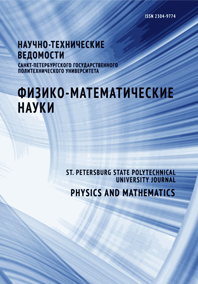Influence of quantum states imperfections on the error rate in measurement-device-independent quantum key distribution
Quantum key distribution (QKD) is a modern technology that allows two legitimate users obtaining a shared cryptographic key completely secure. Unfortunately, real implementations of QKD systems contain vulnerabilities, such that an eavesdropper can still get information about the key. Therefore, QKD protocols generally use privacy amplification procedures that reduce the size of the key depending on the level of errors that are generally assumed to be caused by a non-legitimate user. So, the quantum bit error rate (QBER) becomes an important parameter significantly affecting the rate of key distribution. In this work, we investigate the influence of quantum states imperfections on the QBER in the measurement-device-independent QKD protocol with time-bin encoding. We proposed a theoretical model that describes imperfect states, and derived formulas for the dependence of the error level on the degree of imperfection. We also conducted an experiment, the results of which are in good agreement with the predictions of the theory.


